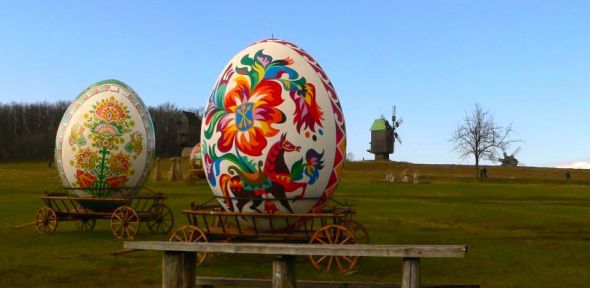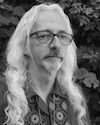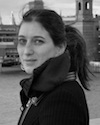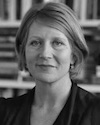
People
 |
Stanley Bill works largely on twentieth-century Polish literature and culture, with particular interests in religion, postcolonial interpretations of Polish cultural history, and Polish-Ukrainian relations. He has written on Czesław Miłosz, Bruno Schulz, postcolonial theory in the Polish context, as well as on religious problems in the novels of Fyodor Dostoevsky. |
|
Elena Filimonova came to language teaching via theoretical linguistics, in which she continues to pursue her interest. She is one of the developers of The Universals Archive and the editor of Clusivity: Typology and case studies of the inclusive-exclusive distinction (Amsterdam: Benjamins, 2005 [TSL 63]). Her current research interests include typology of relational marking and varieties of modern Russian, in particular grammar of spoken, non-academic language. She is also exploring different approaches in designing language textbooks and how politics can affect language teaching. |
|
 |
Rory Finnin's primary research interest is the interplay of literature and national identity in Ukraine. He also studies Soviet Russian dissident literature and Turkish nationalist literature. His broader interests include nationalism theory, human rights discourse, and problems of cultural memory. |
 |
John Kingman's doctoral thesis was on Russian Modernism, particularly Boris Pilniak. He is currently researching a book on the development of animal imagery in Russian literature. |
|
Susan Larsen's research focuses primarily on questions of gender and national identity in Russian culture from the late 18th century through the present. Current projects include work on Russian girls' culture, 1764-1917; sound in 1960s Soviet cinema; late Soviet musicals; and contemporary Russian documentary. Earlier work includes studies of Mikhail Bulgakov and 20th-century Russian theatre. |
|
|
Nikiporets-Takigawa, Dr Galina Galina’s research interests primarily concern contemporary Russian and post-socialist politics, culture and society, the Big Data mining and analytics for mapping the sociopolitical and cultural change, the post-soviet national identities and memory, political activism and networked social movements. |
|
|
Rachel Polonsky works mainly on nineteenth and twentieth century literature and cultural and political history. She is currently researching Russia's relationship with the near east. |
|
 |
Rebecca Reich’s primary research interests are in twentieth-century Russian literature and culture. She also has interdisciplinary interests in film and popular culture; intellectual and cultural history; and the history of science, medicine, print culture, law and dissent. Her current project examines psychiatric and literary conceptions of insanity in the Soviet Union from the 1950s to the 1980s. |
 |
Kylie Richardson’s research has focused in the past on issues in Slavonic linguistics, and primarily on Slavonic morpho-syntax. She is still interested in topics in Slavonic aspect. She is, however, currently working on language and consciousness, which includes researching the shamanic explorers of consciousness in Slavonic history and culture. |
 |
Alyson Tapp's areas of research are Russian literature of the nineteenth and early twentieth centuries: genre, narrative, subjectivity; history and theory of the novel and of the lyric; natural history, nature writing. |
|
Josephine von Zitzewitz's main interest is Russian poetry from the period of modernism to the 21th century. Her published research to date focuses on the late Soviet period, in particular 'underground' literature. She is also working on religious thought and its intersection with literature. An additional field of research is the literature and material memory of the Gulag. |
|
 |
Emma Widdis works mainly on Soviet cinema and culture before 1953; her research treats a broad range of historical materials, including literature, visual art, theory, architecture and popular science. In particular, she is interested in the relationship between cultural production and the project of creating 'new' subjectivities to correspond to revolutionary ideals. |



